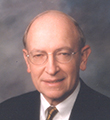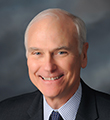Kansas Legislative Insights Newsletter | January 19, 2018
A Key Vote Postponed
The State Finance Council canceled its meeting on the issue of whether to enter into an agreement to build a $362 million “correctional facility” at Lansing. The new facility would replace the antiquated state prison there, parts of which date back to the 1860s.
The State Finance Council is composed of the governor and legislative leadership and has the authority to expend state revenues, but it normally only meets when the legislature is not in session. However, even though the legislature is in session, they had planned to meet yesterday and vote to enter into a 20-year “lease-to-own” contract with CoreCivic, a private prison developer.
There was no official comment as to why the Council meeting was postponed, but statehouse chatter centered on the governor not having enough votes to get the agreement approved. The two Democrats on the Council were likely “no” votes and the seven Republicans were rumored to be evenly split on any motion to approve.
The new facility would be designed to reduce the number of employees needed to maintain a safe environment. The Department of Corrections has had difficulty hiring qualified personnel due to low wages and employee safety issues in the present facility.
There are numerous legislators who are opposed to allowing the Council to make the decision on a new prison, rather than leaving it to the full House and Senate. No date was announced for another meeting of the Council.
The Second Time Around
The U. S. Senate Foreign Relations Committee has once again recommended to the full Senate the nomination of Governor Brownback to become the Ambassador-at-Large for International Religious Freedom. That same committee had recommended Brownback last fall, but Congress adjourned in December before the full Senate could take a vote on the nomination, so the process had to start all over again.
No specific time has been set for a vote on the nomination by the full Senate, but it could be delayed again if Senate Democrats decide to challenge the nomination on the Senate floor. Another factor that could cause a consideration delay is the intense congressional battle on the continuing resolutions designed to keep the federal government operating on a temporary basis. Meanwhile, Lt. Governor Jeff Colyer continues to work behind the scenes to promote Governor Brownback’s budget and legislation agenda and waits for Senate action in Washington that would allow him to move across the second floor of the state capitol into the governor’s office.
Kansas – The Industrial Hemp State
Could this be on the Kansas license plate of the future? It is not likely to replace wheat as the leading crop in Kansas agriculture any time soon, but interest is building to allow the cultivation of industrial hemp. More than half of all states in the country allow private and/or research cultivation of industrial hemp, which has several uses as fiber and food stuffs, but has long been banned in some states, including Kansas, because of drug implications.
The last session of the Kansas House overwhelmingly supported a bill which would have allowed controlled cultivation, but the Senate failed to take any action when law enforcement groups opposed the legislation. This year it appears there is stronger Senate support for a bill (SB 263) that would grant research rights on industrial hemp to the state Regents institutions and the Kansas Department of Agriculture.
Bill Summaries
Bill introductions and committee hearings were relatively sparse this second week of the session. Most of the hearings that were held were informational in nature. The number of hearings on substantive bills will increase significantly next week, as will the number of bill introductions, since the first bill deadline of the session is only ten days away.
Below are summaries of selected bills introduced this week. Additional information on each bill can be accessed by clicking on the bill number.
BUSINESS AND ECONOMIC DEVELOPMENT
HB 2464 – Allows a military service member who is required to relocate for a period of 90 days or more to terminate or suspend contracts involving telecommunication services, internet services, athletic club or gym membership services, and satellite radio services. Such services shall be reinstated on the original terms and conditions as originally agreed to. (Referred to the House Committee on Veterans and Military, Rep. Les Osterman, chair)
HB 2470 – Allows a microbrewery to contract with one or more microbreweries to manufacture beer or hard cider for the microbreweries. This can be done on both an intrastate and interstate basis. Such manufacturing must stay within the current gallonage and barrel aggregate limits set for microbreweries. (Referred to the House Committee on Federal and State Affairs, Rep. John Barker, chair)
HB 2475 – Allows a microbrewery licensee to sell – for consumption off the licensed premises – beer manufactured by the licensee and placed in containers of a specified size. Identification labels are required on the containers. (Referred to the House Committee on Federal and State Affairs, Rep. John Barker, chair)
HB 2476 – Amends the alcoholic beverage statutes to include a definition of “alcoholic candy” as any candy or other confectionary product with an alcohol content greater than 0.5% alcohol by volume. (Referred to the House Committee on Federal and State Affairs, Rep. John Barker, chair)
HB 2482 – Amends the period of time when the sale of alcoholic liquor is prohibited in any public venue, club, or drinking establishment to be from 2:00 a.m. to 6:00 a.m. Currently that period is from 2:00 a.m. to 9 a.m. (Referred to the House Committee on Federal and State Affairs, Rep. John Barker, chair)
FINANCIAL SERVICES
SB 283 – Imposes time restrictions for notifying the State Bank Commissioner when there is a change of control of a state-chartered bank, bank holding company, or trust company. Allows a waiver of certain notifications if the bank or trust company is under a formal corrective action. Also broadens the experience requirements for the position of Deputy Commissioner for the Banking Division. (Referred to the House Committee on Financial Institutions and Pensions, Rep. Jim Kelly, chair)
HEALTH CARE
HB 2471 – The bill would enact the physical therapy licensure compact in order to facilitate the interstate practice of physical therapy with the goal of improving public access to physical therapy services. The bill would also require states that wish to participate in the compact to require practitioners to undergo criminal background checks. (Referred to House Committee on Health and Human Services, Rep. Daniel Hawkins, chair)
HB 2496 – The bill proposes adoption of the multistate nurse licensure compact. The multistate licensure compact for licensed registered nurses and licensed practical nurses has been a matter of interest in Kansas prior to the 2018 session. Although Kansas is not now a member of the nurse licensure compact, LPNs and RNs may be licensed by examination or endorsement in Kansas. The Kansas Board of Nursing licenses practical nurses and registered nurses – the state currently has approximately 60,000 RNs and 11,000 LPNs. Approximately 25 states are currently participants in the multistate compact. (Introduced; Referred to the House Committee on Health and Human Services, Rep. Daniel Hawkins, chair)
INSURANCE
HB 2469 – The bill would permit insurance companies to provide temporary claim services to their client in the case of a catastrophic event. The bill would also restrict local governments from imposing restrictions and licensing requirements for insurance claims during an emergency, catastrophe, or other life- or property-threatening event. However, the insurance company would be required to provide notice to the city or county before establishing a temporary claims-handling operation. (Referred to the House Committee on Insurance—Rep. Jene Vickrey, chair)
HB 2487 – The bill would enact policies to assure the payment of compensation as the result of a motor vehicle accident in which an employee is injured or killed under the Workers Compensation Act. The bill also sets forth the powers and duties of the Commissioner of Insurance as related to this bill. (Referred to the House Committee on Insurance, Rep. Jene Vickrey, chair)
TAXES
HB 2488 – Amends the motor-fuel tax law by excluding “alcohol” from the definition of “special fuels”. (Referred to the House Committee on Taxation, Rep. Steve Johnson, chair)
HB 2489 – Amends the Multi-state Tax Compact by redefining what constitutes “business income” and “taxpayer options”. (Referred to the House Committee on Taxation, Rep. Steve Johnson, chair)
HB 2490 – Defines under Kansas sales tax law what constitutes “Durable medical equipment”. (Referred to the House Committee on Taxation, Rep. Steve Johnson, chair)
HB 2491 – Amends sales tax law to specify when “appliances” and “electronic products”, as defined, and the installation of such products are not subject to the Kansas state sales tax. (Referred to the House Committee on Taxation, Rep. Steve Johnson, chair)
TELECOMMUNICATIONS
HB 2462 – Requires the state or local units of government to lease excess “dark fiber”, as defined, to private-sector broadband providers on a “cost-plus basis”. The state and local governments would be allowed to retain enough dark fiber to meet “reasonably anticipated” 50-year needs. (Referred to the House Committee on Energy, Utilities and Telecommunications, Rep. Joe Seiwert, chair)
HB 2473 – Includes numerous tax incentives for the development of broadband services in rural areas. Allows for state income tax credits and certain deductions from Kansas adjusted gross income, as well as exemptions from state sales and compensating use taxes. “Rural area” is defined as a county with an average population density of less than 100 persons per square mile, excluding the county seat, or which is not served by any broadband service provider or for which there is current county service for less than 10% of the county population. (Referred to the House Committee on Taxation, Rep. Steve Johnson, chair)
Kansas Legislative Insights is a publication developed by the Governmental Relations & Public Policy Law practice group of Foulston Siefkin LLP. It is designed to inform business executives, human resources and governmental relations professionals, and general counsel about current developments occurring in current Kansas legislation. Published regularly during the Kansas legislative session, it focuses on issues involving health care, insurance, public finance, taxation, financial institutions, business & economic development, energy, real estate & construction, environmental, agribusiness, employment, and workers compensation. Bill summaries are by necessity brief, however, for additional information on any issue before the Kansas Legislature, contact Foulston Siefkin’s Governmental Relations & Public Policy Law practice group leader, James P. Rankin at 785.233.3600 or jrankin@foulston.com.
Kansas Legislative Insights Editors
 |
Jim Maag jmaag1@cox.net 785.806.3472 |
 |
James P. Rankin jrankin@foulston.com | View Bio 785.233.3600 |
Jim Maag and James P. "Jim" Rankin are co-editors of Foulston Siefkin’s Kansas Legislative Insights. Jim Maag, a non-lawyer Governmental Affairs Consultant to Foulston Siefkin’s Governmental Relations & Public Policy Practice Group, provides legislative monitoring and lobbying services for our governmental relations clients. Mr. Maag has had a distinguished career in governmental matters and banking, most recently serving as President of the Kansas Bankers Association. He has been involved in the Kansas legislative process for more than four decades as a legislator, administrator or lobbyist. As a partner at Foulston Siefkin, Mr. Rankin's practice focuses on employee benefits law relating to public, private, governmental, and tax-exempt organizations. A large part of his work involves insurance regulatory and compliance issues in many industries, including health care. Mr. Rankin has been selected by peers for inclusion in The Best Lawyers in America® and the Missouri & Kansas Super Lawyers® list. He is the firm's representative with State Law Resources, Inc., a national network of independent law firms selected for their expertise in administrative, regulatory, and government relations at the state and federal level.
This update has been prepared by Foulston Siefkin LLP for informational purposes only. It is not a legal opinion; it does not provide legal advice for any purpose; and it neither creates nor constitutes evidence of an attorney-client relationship.





